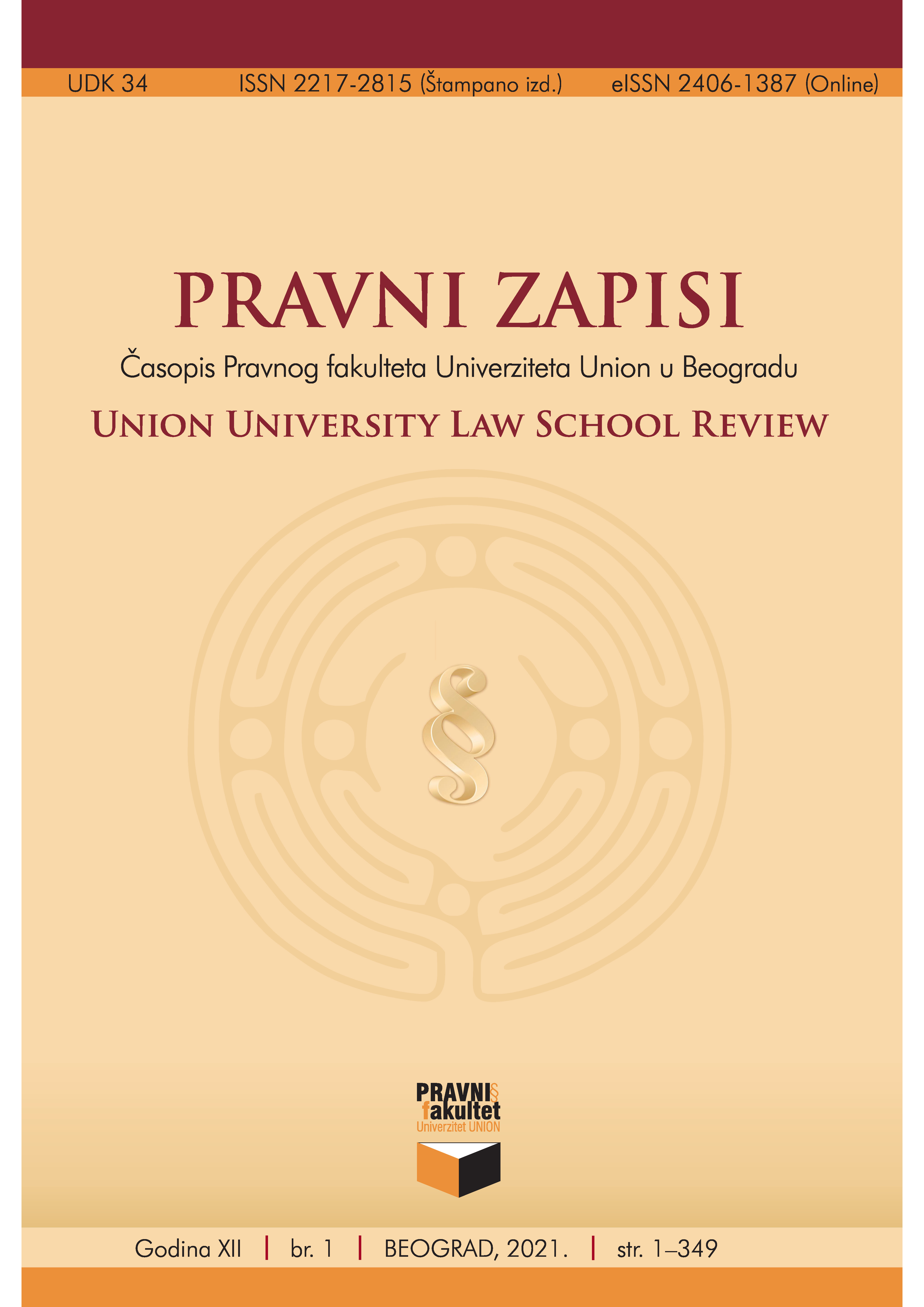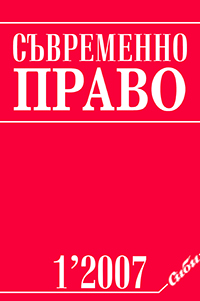
We kindly inform you that, as long as the subject affiliation of our 300.000+ articles is in progress, you might get unsufficient or no results on your third level or second level search. In this case, please broaden your search criteria.

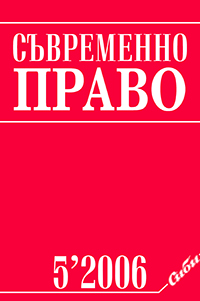
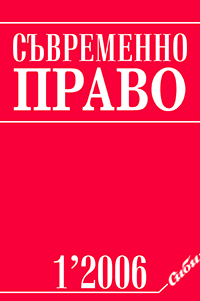
The advancing information society influences the characteristics of contemporary law. The changes consider the legal science, the normative regulation and the law enforcement. Thus the information society’s impact on law has three major directions. First, new objects of normative regulation appear. Second, new mechanisms for law enforcement within the virtual environment are elaborated. These effects determine the nature of law changes. Third, the legal science and its conceptual apparatus are changing. The article examines the changes in the first and second direction. The concepts “virtual legal relations” and “virtual legal facts” are introduced. Their original qualities are stated. The operation of virtual legal relations is described and the significance of virtual legal facts within the legal framework of the virtual environment is pointed out.
More...
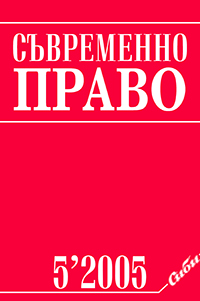
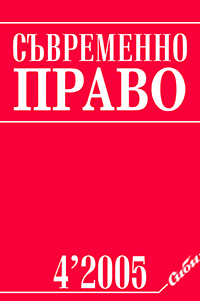
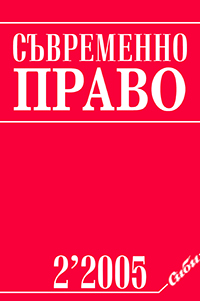
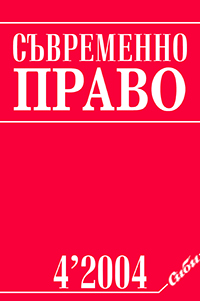
The article studies the role Norberto Bobbio played in the creation of the Italian analytical school and his significance for the development of legal philosophy. The author emphasizes the fact that Bobbio preserved the solid theoretical foundation of the Kelzen’s positivism and enriched it with original contributions — the two aspects of validity of the legal acts, the reversal of the correlation ‘legal act — legal order’ and the existence of incomplete and incoherent legal order. The main emphasis of the article is on Bobbio’s analytical method. It highlights the contribution Bobbio and Scarpelli made for the establishment of a new approach to law and legal theory — the concept of law as a language and the legal theory as a metalanguage. The author reveals Bobbio’s arguments in defining the legal act as a prescriptive speech act and in proving the autonomy of the prescriptive language in relation to the descriptive and expressive language. Some general notes are made on the development of the Italian analytical school from the new generation of philosophers and theorists.
More...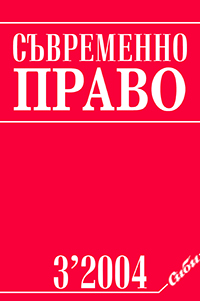
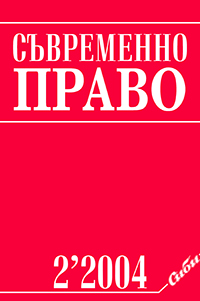
The article studies the analogy as a method of the modern legal thought. The issues under consideration are related to the presentation and clarification of the development of analogy as a method of juridical argumentation. In this respect the ideas of analogy in law of the legal theorists in the period from 19th century to the present day are presented, accompanied by critical analysis and drawing specific conclusions. The outcome of the legal theoretical analysis is the conclusion that the analogy in law during the studied period (19th—20th centuries) developed as an independent legal and logical method for juridical justification and rationalization of the legal discourse.
More...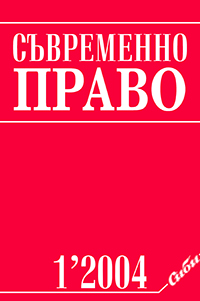
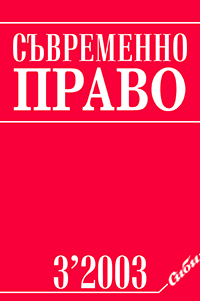


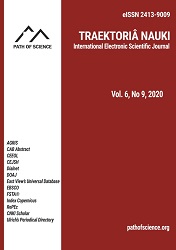
The article presents the conceptual principles of interpretation of the legal liability of judges in Ukraine. Based on the conducted research, it has been revealed that by the provisions of the Constitution of Ukraine and the Law of Ukraine “On the Judicial System and the Status of Judges” judicial power in Ukraine is entrusted to judges. It has been proven that judges are guided by the superiority of law and are independent in administering justice. Based on the provisions of the law, it has been established that without the consent of the Supreme Council of Justice a judge cannot be taken and kept under arrest until the moment when the court passes the corresponding sentence, except for serious and extremely serious crimes. It has been established that a judge can be prosecuted for a court decision, except in cases of a crime or disciplinary action. It is determined that the key feature of the legal responsibility of judges is the directly negative nature which it bears for the offender. At the same time, the insufficiently high level of conscientious performance of official duties, which are defined by legal norms, and the low level of self-awareness are considered to be the manifestation of the legal responsibility of judges. It has been found out that there is no reason to distinguish procedural responsibility as an independent type of legal responsibility of judges because the consequences of procedural activities of judges in resolving court cases are manifestations of their legal position and personal convictions. It is established that the essence of the legal responsibility of judges is aimed at 1) promoting the legality and objectivity of the trial and making a court decision on this basis by the law; 2) creation of a holistic legal consciousness of judges of the judicature; 3) prevention of offenses that are committed and may be committed by judges; 4) ensuring a high level of independence of judges; 5) strengthening the authority of the court and raising the level of citizens to the court; 6) lustration of the judicature within the framework of the provisions defined by the law, according to which the judicature will include only fair and dedicated judges.
More...
The concept of legal responsibility (liability) implies a violation of the dispositive norm and subjecting the offender to envisaged sanctions. Legal responsibility is based on three key elements: the subject, the object, and the legal grounds of responsibility. The legal state (Rechtsstaat) is inconceivable without responsibility, which is present in all areas of law. In constitutional law, it is reflected in the legal and political responsibility of the state authorities. Civil and criminal liability differ in terms of sanctions. In civil law, there is subjective liability based on culpability and objective (strict) liability. As a consequence of committing a crime, criminal liability includes two elements: sanity and guilt. While guilt is a subjective element of a crime which cannot be avoided, criminal liability can be avoided. According to Kelsen, the subject of legal responsibility and the legal obligation are equivalent. He distinguishes between subjective liability based on culpability and absolute (objective) liability. This distinction rests on the individualistic ideal of justice. Logically, the sanctions also differ in these two cases. Kelsen also recognizes collective responsibility (especially of legal entities), which is always absolute. In civil law, the subject of obligation and the subject of liability correspond. Živanović provides detailed accounts on the concepts of delict, delinquent, and sanction. According to Živanović, a delict (in all branches of law) is a violation or endangerment of a subjective right. A delinquent, i.e. the infringer of legal norms, is the object of sanction. In analyzing the concept of sanction, he identifies seven distinctive elements of a sanction. The comparison of Kelsen and Zivanovic’s conceptions of legal responsibility yields notable results. Both authors were aware of many aspects of legal responsibility. In spite of the obvious terminological differences, they essentially discuss the same legal issues. When observed jointly, these two authors provide a wide-branching “scheme” of both legal responsibility in general and area-specific liability in particular.
More...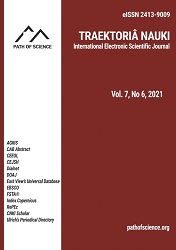
The article examines constitutional and legal problems of the study of the object composition of land relations. Analysis of scientific views in the national legal doctrine on interpreting the meaning of the term “land” is carried out. It is concluded that the basic principles of land relations are declared in the Constitution of Ukraine, and their analysis enables us to argue that a land is a unique object of legal relations. In the Constitution of Ukraine, the term “land” is used in several meanings, namely as the object of property rights of the Ukrainian people; the object of property rights of citizens, legal entities and the state; the object of the law of the territorial community; the object of special protection by the state. Thus, land relations have a particular subject and object composition. The specific features of the land as an object of legal relations declared in the Constitution of Ukraine determine the content of land relations.
More...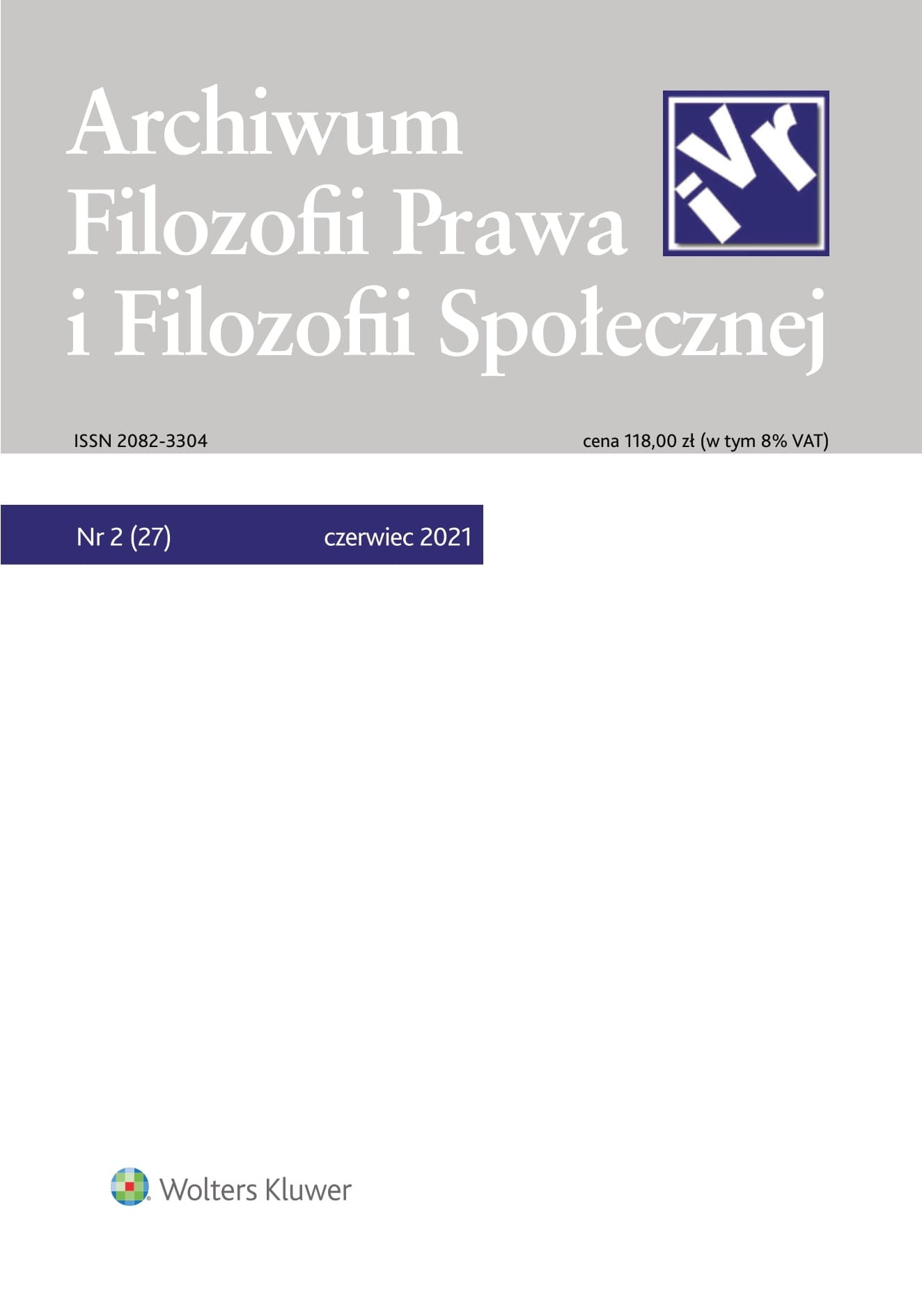
The article deals with justification of generally binding legal acts as part of a state governed by the rule of law. The “state of exception” caused by the COVID-19 pandemic adds a new dimension to the issue of justification. The practice prevailing in the Czech Republic in 2020 did not reflect even the minimum requirements for justifying emergency measures, which brought on problems both in the practical application of the adopted measures and in their subsequent judicial review. The article attempts to find an appropriate level of justification, referred to as the threshold of justification and based on the coherentist theory of epistemic justification. The basis of such justification lies in the idea that individual grounds for justification can be found in the explanatory reports of the legislation, on the one hand, and in various pieces of relevant information available to the addressees, on the other hand. All these reasons should form a coherent whole and they should ultimately legitimize restrictions on the freedom of individuals. The final part of the article describes the importance of the threshold of justification for the review of proportionality and even reasonableness of the law.
More...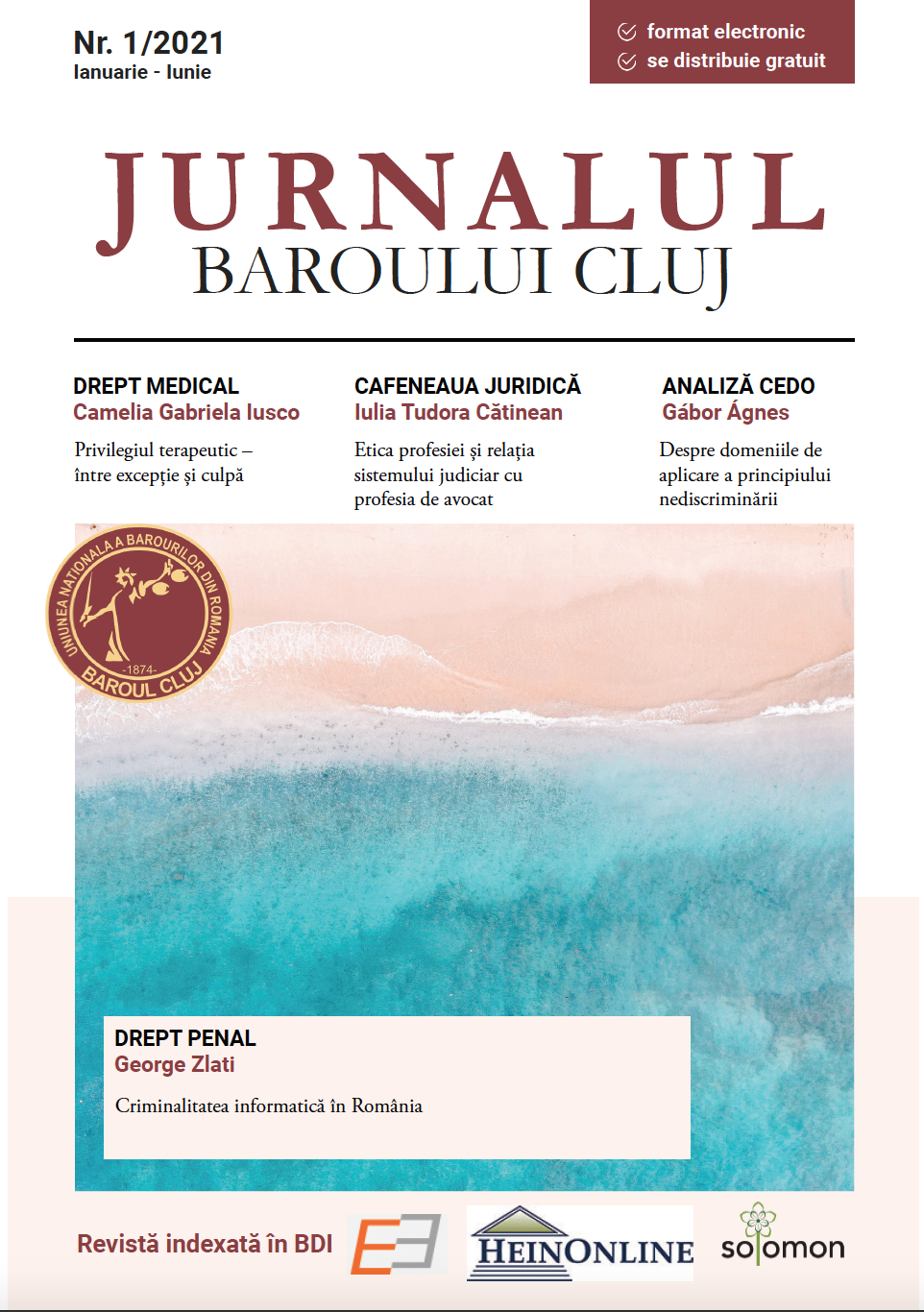
Our paper tackles a few aspects regarding the impact of professional ethics on lawyer’s credibility and on the public image of lawyer’s profession, within the context of conserving the professional independence standard. One of the current requirements is to set the axiological contents of professional values and principles within the vision of each profession and to determine a joint guiding mark. Therefore we identify and suggest solutions for improving the trend in question, such as the cooperation and dialogue mechanisms’ implementation as set by the Guide to Good Practices within the judicial system’s relations to other professions, especially lawyers, adopted by the Superior Council of Magistracy and undertaken by the National Romanian Bar Association or the creation of structures dedicated to professional ethics that may provide lawyers with support and assistance in solving ethical issues that might arise during professional practice.
More...